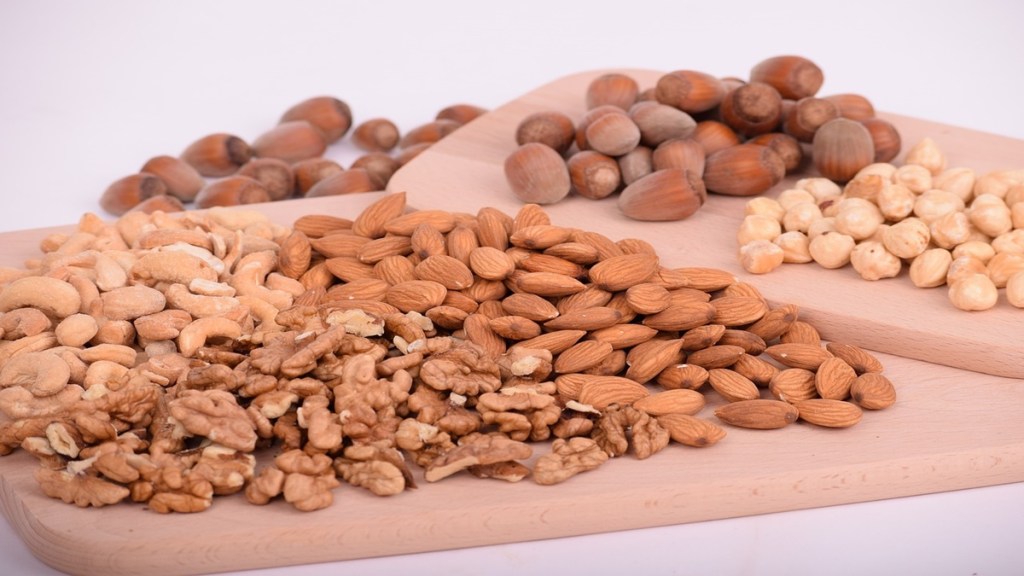Nuts have been considered a nutritious and delightful snack. They are a source of essential nutrients, as they are rich in fibre, vitamins, minerals, proteins, and good fats. Nuts are particularly regarded for their monounsaturated and polyunsaturated fats, which have been proven to lower the risk of cardiac disease.
Numerous studies have emphasized the extraordinary health advantages of consuming almonds, Gunjan Jain, President of Nuts and Dry Fruits Council of India NDFC(I) said. According to a 2024 survey conducted by the “American Heart Association”, 20% of adult consumers who regularly consumed nuts reported improved cholesterol levels and better overall heart health.
Research published in “The American Journal of Clinical Nutrition” indicates that regular consumption is associated with lower risks of chronic illnesses such as cardiovascular disease, type 2 diabetes, and certain cancers.
Here are some best nut options for a better living:
Cashews: Delicious Immune System Boosters
Cashews are an exceptional immune enhancer due to their high concentration of zinc, which is essential for the development and proper functioning of immune cells and processes. Additionally, magnesium promotes the function of muscles and nerves, while copper aids in the production of red blood cells, thereby enhancing immunity and promoting the production of red blood cells. Raw or roasted, cashews are a delectable addition to a variety of dishes, such as curries or stir-fries. Additionally, cashew butter is a popular ingredient in spreadable treats.
Walnuts: the Brain-Boosting Nut
Walnuts are highly rich in omega-3 fatty acids which have been scientifically proven to benefit mental health. Omega-3s are associated with improved cognitive function and lower risks of neurodegenerative conditions like Alzheimer’s. Their abundance of antioxidants also provides immunity to fight against oxidative stress and inflammation of the mind, making walnuts ideal for snacking or adding crunchiness and variety when baking or creating salad dishes.
Almonds as Heart Health Heroes
Almonds have been long known for their health-giving advantages due to the large amounts of vitamin E, magnesium and fibre that they possess in abundance. They have also been found to reduce LDL levels and help maintain a healthy heart as regular intake is associated with increased nitric oxide production, improved blood vessel function and reduced inflammation markers within the vessels. The paper published in The Journal of Nutrition showed how almonds can significantly decrease risk by fighting against inflammation of the blood vessels while additionally promoting overall cardiovascular well-being. Almonds are edible either raw, roasted or used to make almond butter- additionally, they can be mixed into smoothies, salads or oatmeal dishes!
Hazelnuts: The Antioxidant-Rich Nut
Hazelnuts have high levels of antioxidants particularly Vitamin E which helps fight against cells damaging oxidative stress. Antioxidants are critical to reducing inflammation, preventing chronic diseases and minimizing risk factors. Moreover, hazelnuts contain healthy fats, fibre and minerals such as copper and manganese among others that offer extra advantages. For example, hazelnuts are frequently used as dessert toppings in chocolate spreads but they can also be roasted and then incorporated into salads or baked foods to create different mouth-watering mixtures.
Pistachios: The Perfect Ally in Gut Health
Pistachios, rich in fibre, provide important health benefits by controlling bowel movement, avoiding constipation and encouraging good gut bacteria in our ecosystem. Furthermore, their antioxidant contents such as lutein and zeaxanthin help protect eyes against free radical damage caused by oxygen molecules; additionally pistachios make an irresistibly tasty snack or they can even be added into dishes like granola, yogurt or pesto sauce!
Here are some beneficial tips:
- Dynamic Powerhouses of Nutrients: Nuts are an excellent source of critical nutrients, such as protein, healthy fats, and vitamins that are necessary to the body. In order to prevent consuming an excessive amount of calories, it is recommended that they be consumed in moderation. The optimal serving size is a small handful, which is around one ounce.
- Various Nuts, Diverse benefits: Include a wide range of nuts in your diet so that you may experience the distinct tastes of each and optimize the health advantages of eating nuts. Individual varieties of nuts each have their own unique set of nutrients. For instance, almonds are a wonderful source of vitamin E, whilst walnuts are a fantastic supply of omega-3 fatty acids.
- Snacking in Moderation: To take your snacking to the next level, try combining nuts with fruits or crackers made with nutritious grains. Because it contains an adequate ratio of carbs, fiber, and healthy fats, this combination helps you feel fuller for a longer period of time when you consume it.
- Boosting the Nutritional Value of Meals: When you add nuts to your breakfast foods like oatmeal, yogurt, or smoothies, you may improve the nutritional profile of your meals. Not only does this provide a wonderful crunch to your foods, but it also leads to an increase in the amount of protein and healthy fat that they contain.
“Ultimately, nuts have several health advantages that improve general health. They are ideal for heart health and chronic disease prevention due to their high nutritious content of healthy fats, protein, vitamins, and minerals. Regular nut intake improves cholesterol, cardiac function, and cardiovascular disease and type 2 diabetes risk, according to several studies. Overall, adding nuts to meals and snacks boosts taste, texture, and nutrients. Nuts, raw, roasted, or cooked, are a tasty and strong health ally,” Jain added.

